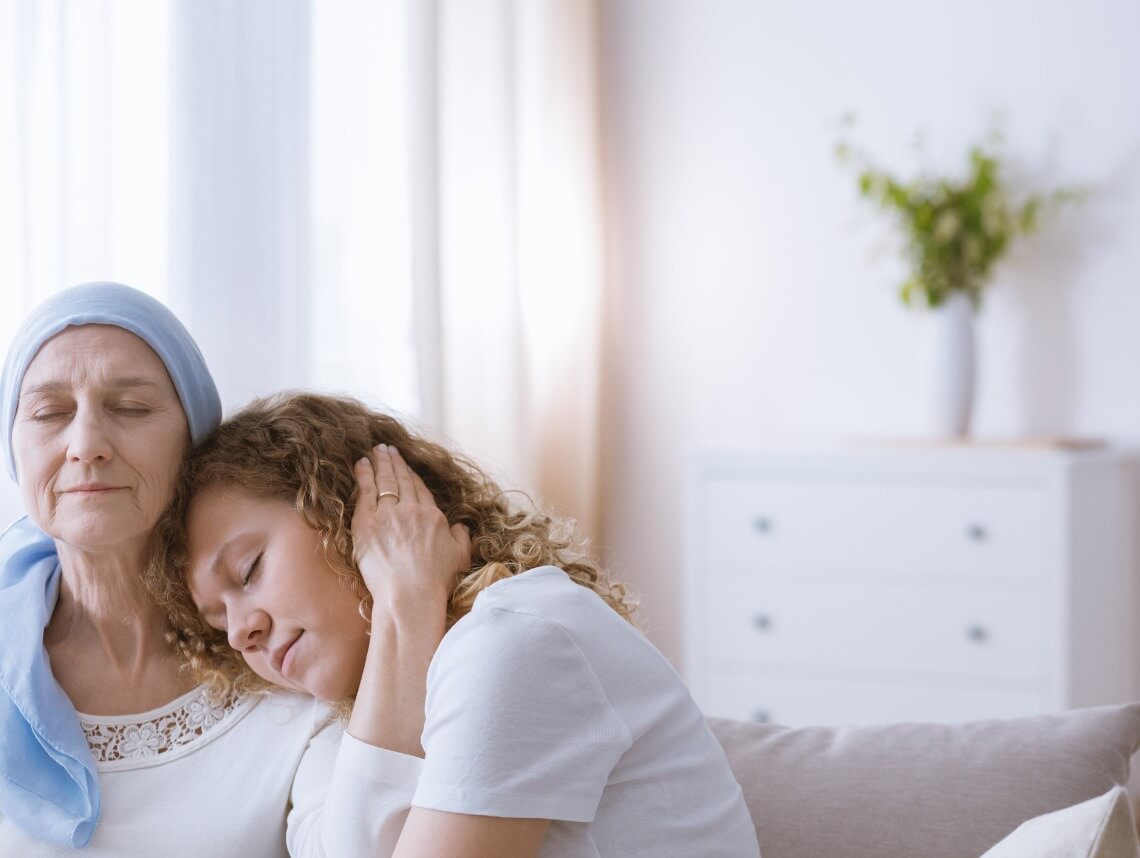
Hearing “you have cancer” is one of those moments indelibly inked into your mind. Finding out your senior parent is facing this disease and the possible side effects that the treatment brings can be devastating. Many families are faced with the decision: Is the treatment worth the cure? Even a healthy person can be overcome with the effects of chemotherapy. A senior person suffering from numerous diseases is even more susceptible.
The Caregiving Team
One of the most important roles a family caregiver fulfills for their parent is that of a medical advocate. Make sure that your senior loved one has a good caregiving team in place and one that wants them in on the decision process for treatment options.
Have a candid conversation regarding the risks versus benefits. Find out what treatment they recommend and why—what is the ultimate goal of that particular type of treatment? Managing the side effects of treatment can make a big difference in the quality of your loved one’s life. At a certain time, they may decide that feeling well is more important than curing cancer permanently.
Cancer Treatment
Traditional treatment for cancer includes surgery, radiation, and chemotherapy. Some treatments may not be recommended if you suffer from other diseases. For instance, surgery may not be recommended if you have heart disease. Someone with COPD may find it difficult to tolerate the effects of general anesthesia.
Chemotherapy Side Effects
Older adults can experience more severe side effects of chemotherapy. These include the following:
- Anemia, increasing the risk of infection as well as bleeding and bruising
- Digestive problems such as nausea, vomiting, and diarrhea
- Increasing memory loss, nerve damage, and fatigue
- Interaction with other medications that they are currently taking
There are healthcare specialists whose job is to help those who have had chemotherapy manage their treatment side effects, so don’t hesitate to ask any questions and understand the process before it takes place.
How to Care for Seniors Undergoing Chemotherapy
Helping support your senior parent through this challenging time is an important part of your parent’s treatment and recovery process. Fortunately, there are possible solutions and support available.
Due to the loss of the number and makeup of nerve cells, seniors are more prone to neuropathy or nerve damage. This can lead to pain, tingling, and numbness. You can help by encouraging them to stay active, avoid sharp objects, and provide clothes that are easy to change into and out of.
Nausea is a common side effect. Encourage your parent to eat small meals throughout the day—known as grazing. Before a treatment, suggest that they eat a light meal. Offer flat ginger ale or ginger tea. One of ginger’s properties is anti-nausea.
Distraction works wonders when someone is going through the effects of chemotherapy. Get out the board games and favorite videos and set up regular visitations or phone calls from friends and relatives.
Contact Care Options for Kids for Home Care Services after Chemotherapy
A senior care provider can help your parent as they recover from the effects of treatment. They can assist with everyday living activities, such as bathing, dressing, meal preparation, running errands such as grocery shopping, and providing transportation to appointments. They can provide the companionship that keeps your parent occupied and otherwise engaged.
If you or an aging loved one are considering home health care services, contact the caring staff at Care Options for Kids. Call today at (888) 592-5855.
Sources
bottomlineinc.com/health/neuropathy/natural-cures-for-painful-neuropathy
care.com/senior-care-caring-for-seniors-undergoing-chemotherapy-p1143-q274605.html
